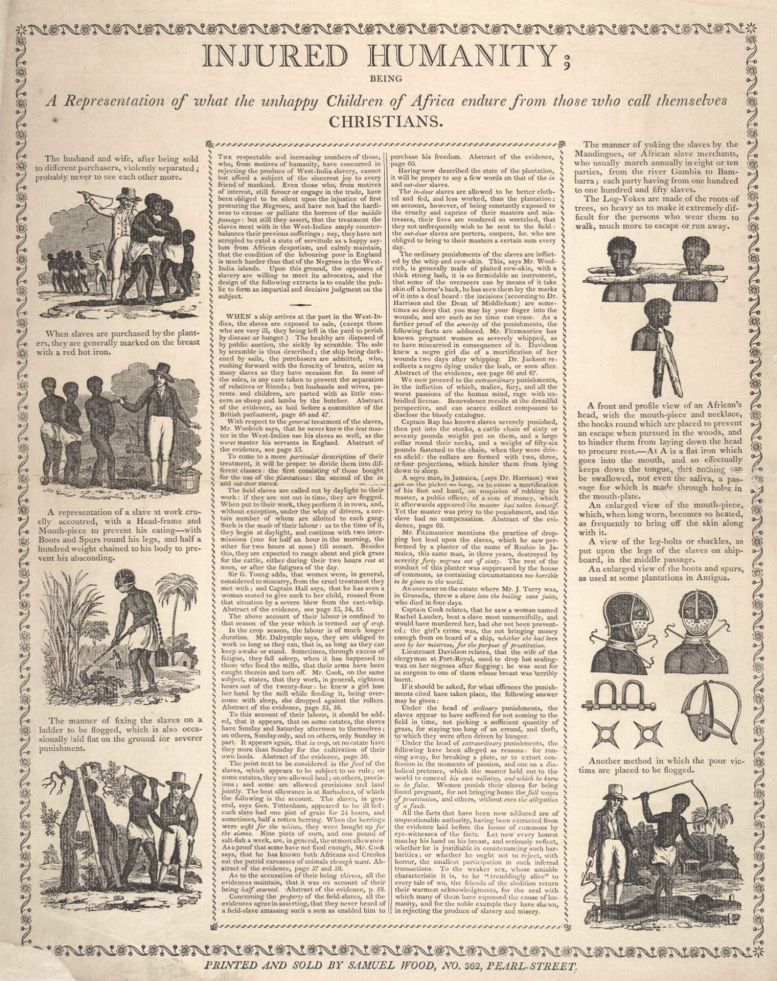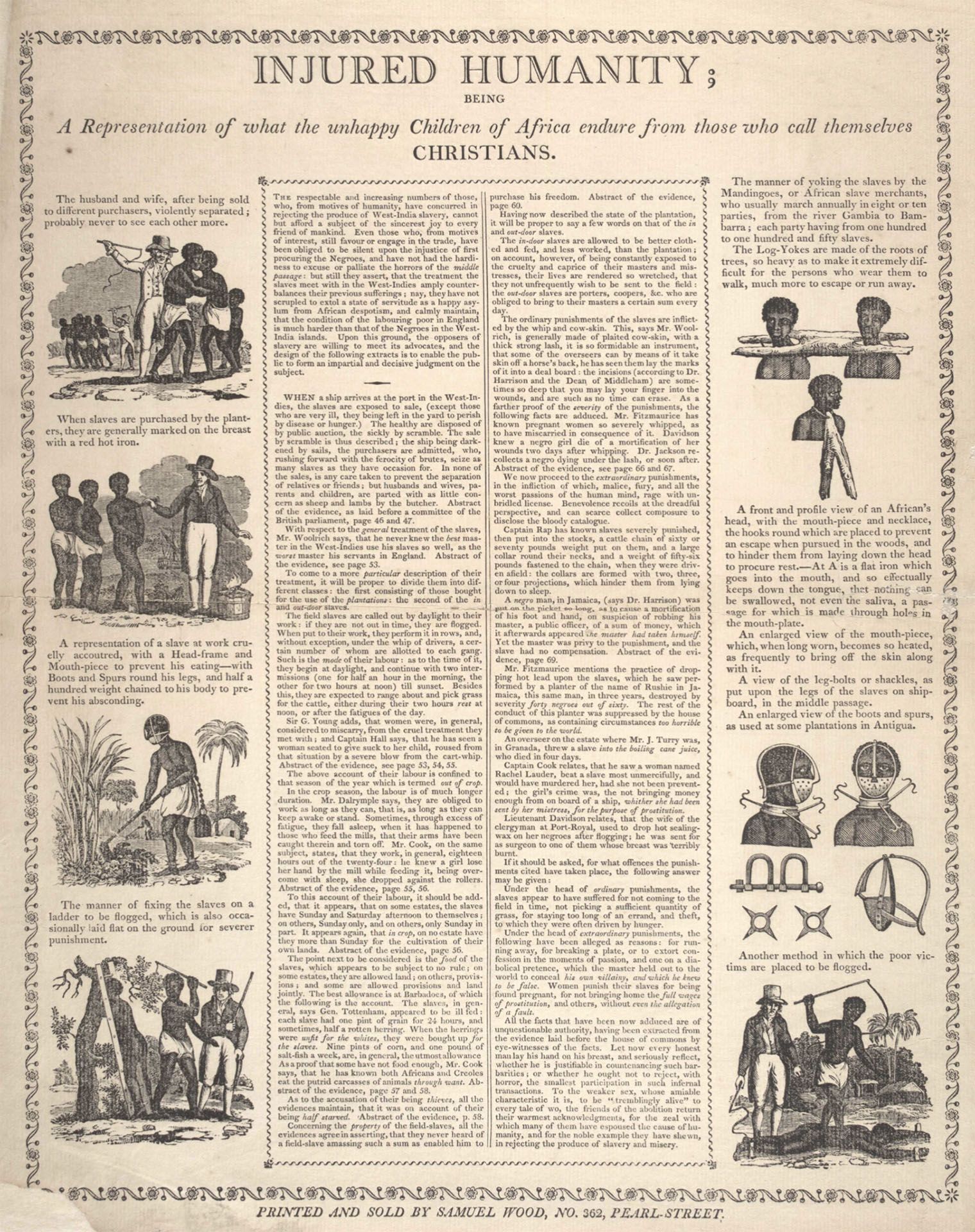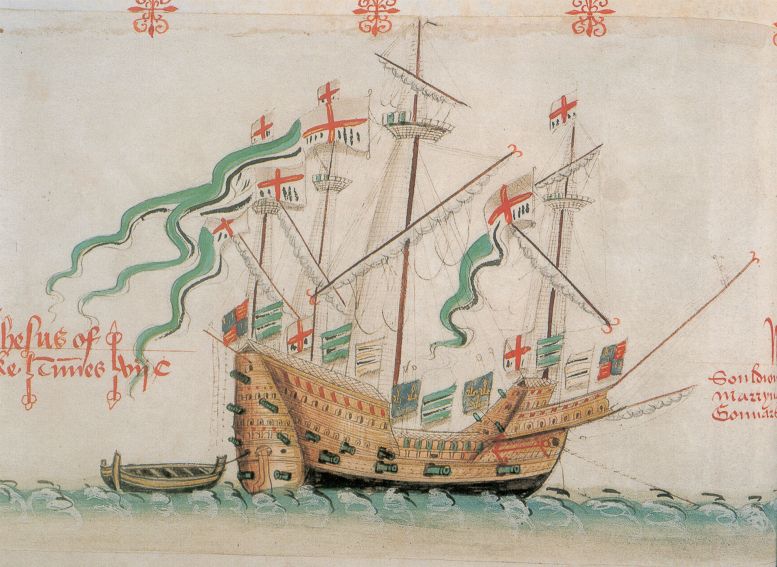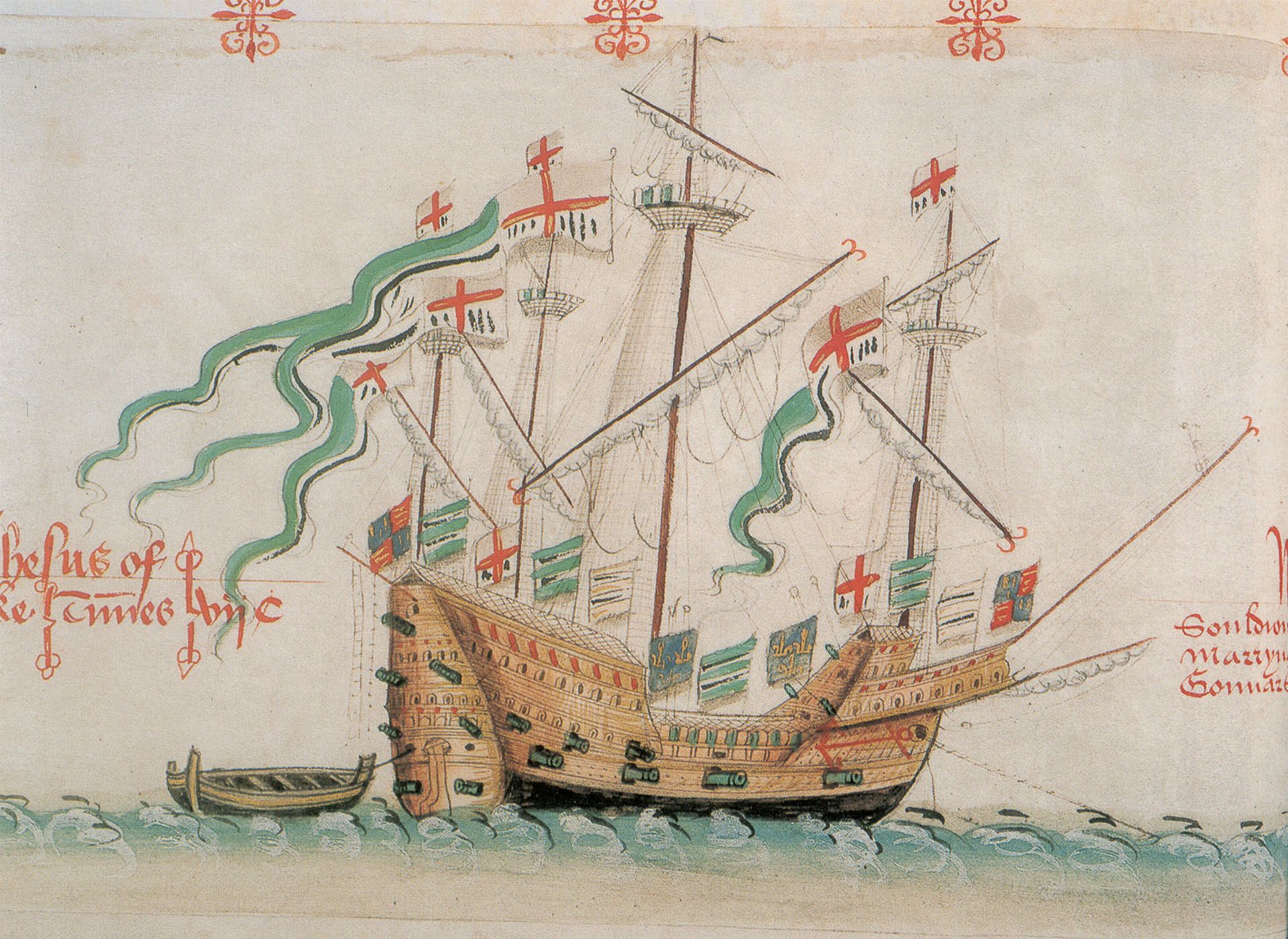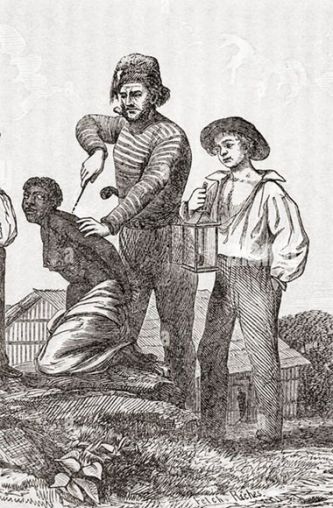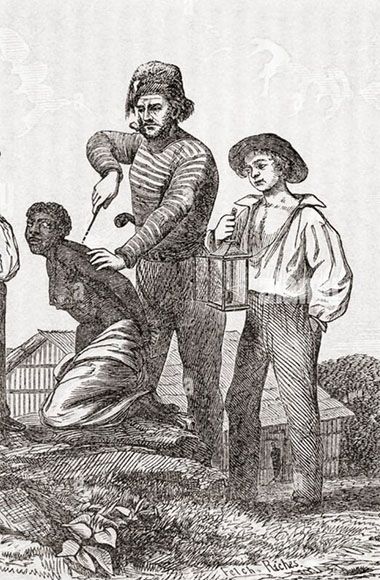IN THE NAME
A PHILOSOPHICAL PERSPECTIVE ON THE SLAVE SHIP JESUS OF LUBECK
As a kid, did you ever run outside to summon a sibling to come in the house? We didn’t say … "you need to come in the house right now.” No, we’d say “Mamma said, you need to come in the house right now.” Our command alone was insufficient to carry enough authority to get the results that we wanted.
We needed to appeal to a higher authority … Mamma.
In her name, we could get stuff done. It’s been the same thing in church. At the end of Deacon Jones’ prayer was the ever-present, "in the name of Jesus we pray ... Amen." I did a little checking. He got that from the Bible. Again and again, verses use this idea of "in the name of".
This wasn’t just the juice at the end of a prayer to try to make it work a little better. There was this concept of doing something in God’s name or "for the glory or honor of God." This idea is repeatedly found in Christianity, Islam, and Judaism.
It’s the attitude that the action we are taking is because we want God to somehow be lifted up as a result of what we are doing. We want His kingdom to be exalted because of what we are doing. This motive can be good, or it can be bad ... very bad.
Admiral John Hawkins is often remembered as one of the greatest men in the early English navy. Along with his cousin and companion Sir Francis Drake, he helped defeat the Spanish Armada and cement England’s role as ruler of the seas. But like most men who fell under the category of "Sea Dogs", his career was filled with a blood-thirsty ruthlessness far removed from the modern ideas of heroes.
Yes, the honor, the name, and the kingdom of God can be magnified because of our efforts. Where that idea runs off the rails is when self-interest steps in. We re-label self-interested actions to try to convince ourselves or others that our behavior is for the betterment of our family, community, or country.
It begins small. Our focus becomes less upward, less outward, and more inward. We then repaint actions to try to show a motive that is for the greater good rather than to feed our own ego or coin purse.
This idea begins to leave the track when we start to believe our own lies and promote them within our society. We use a twist of logic to justify a revised ethic that allows behavior that was once reprehensible to become, acceptable…yea even commendable. The result is a train wreck that leaves thousands upon thousands of lives ensnarled in the twisted iron of deceit and selfishness.
... they have the audacity to name a ship like this "Jesus of Lubeck". What was their motive for this name?
For hundreds, no, thousands of years, shift of self-focus and change of ethic to justify it, is what allowed one culture after another on nearly every continent to capture, brand, and sell human beings into the horror of chattel slavery. And of course, all for the glory of God.
Just look at the painting entitled Jesus Saves by Craig Rippon. It highlights the reality of how a slave ship could be packed to the brim with stolen humans. Then ... then they have the audacity to name a ship like this "Jesus of Lubeck". What was their motive for this name?
They had to know that their ship was being commissioned to transport stolen humans to be used as a labor force in a new land. How did they justify this behavior?
To commit atrocities against another human, psychologically, the perpetrator must transform the prey into something less than human. Hitler had to do this in Germany to get his society to hate the Jews. Historical writings show that they saw the enslaved people as less than white men. Inferior intellect, greater tolerance of pain, etc. But the name. Why that name?
I can only guess it might be like cabbies in New York City. Perched on the dashboard of nearly every taxi I rode in was a statue of the driver’s deity. For some, it was the Virgin Mary, the Hindu elephant god Ganesha, Jesus, etc. To me, it seemed like they viewed the statue as a good luck charm for the driver.
Did the owners of the “Jesus of Lubeck” name their ships this way as a means to somehow curry God’s favor for their enterprise? It’s hard to know. But, it is certain that they saw benefit in invoking that Name.
Maybe they used this Name to somehow ease their conscience due to some of the regrettable means used to capture and convert souls whom they simply saw as heathens. Even so, the priority of extending the Kingdom of God and bringing His light to the darkened souls of Africa, the Americas, and elsewhere…. this is the bigger picture that must be kept in mind. The end justifies the means. Amen?
How many wretched deeds have been done in the name of God ... then and now? When any culture can crate up and sell sons, brothers, daughters, and mothers, when a culture can brand this activity with the sanctity of “God’s work,” then that culture has given birth to a bastard gospel. This new gospel is one that wears the clothes of the real one. It sings its songs and occupies its temples. It tries to look and smell like the original one.
Slave branding is the process in which a mark, usually a symbol or ornamental pattern, was burned into the skin of a living slave with the intention to scar the skin permanently. This was achieved by using a very hot or very cold branding iron.
Yet, underneath, it is merely a marionette whose strings remain under the control of none other than Beelzebub.
Slave owners would brand the back, shoulder, abdomen, and even the face of a slave. Frederick Douglass described the act in an address he delivered in England on September 1, 1846, as “A person tied to a post, and his back, or such other parts was branded, laid bare; the iron was then delivered red hot, and applied to the quivering flesh, imprinting upon it the name of the monster who claimed the slave.”
I have mixed feelings when I wander through the pages of history. Yes, to be enslaved was/is a hellish experience. But my ambivalence lies with the church.
We are products of our environment. When you grow up in a Caucasian household in the southern United States, you cannot escape being influenced toward certain things. Your tea must be sweet, and your music must be country. You’ll drive a pickup truck and enjoy chicken fried steak with some buttermilk biscuits and gravy. You vote and worship in manners consistent with your culture. Yes, most often, we become the sum of our environment.
So, when the wind from all the other politicians, business leaders, and preachers to whom you are connected are blowing east, it would take extreme strength to lean west. Yet, throughout history, in every generation there were voices who spoke against the current.
There were those within the church who saw the scriptures in a different light. There were those who mustered the courage to verbalize a different point of view. There were those who allowed their ability to choose, to overpower their desire to just fit in with everybody else. They chose to risk the ire of the masses in order to shine a light on what they saw was wrong within the culture.
This takes courage. It takes unusual courage. We all want to be accepted and loved. We all want to feel that we are appreciated and that we belong. No one wants to feel like an outcast.
So to wake up one day and decide to nail your objections to the door of the church like Martin Luther, or to write against slavery like Pope Gregory XVI, or refuse to give up your seat like Rosa Parks ... well, that day was something.
For each of us there is a day coming. On that day we will be blessed with insight that something around us is wrong. The music of our childhood will not sound as sweet. The logic of our politics will no longer work. Something in our tradition fails to reconcile with our conscience. On that day we begin to see the story of Christoforo, “the Christ bearer” degenerate into the tale of an emissary from hades.
When that day comes, we have a choice to make. We can continue to embrace the warmth and comfort of our environment, or we can step out. We can make a change within ourselves first, and then possibly make a change in our culture. Maybe we can be that dissident voice that starts a ripple that spawns a tidal wave of good, wholesome, positive change.
Has that day come for you?
Maybe we can be that dissident voice that starts a ripple that spawns a tidal wave of good, wholesome, positive change.
Has that day come for you?
Michael R. Douglas
After serving as the Senior Pastor of a congregation for 15 years, he now runs a team that provides fun, educational, and motivational presentations for youth and their families. They serve schools, churches, libraries, and more.



